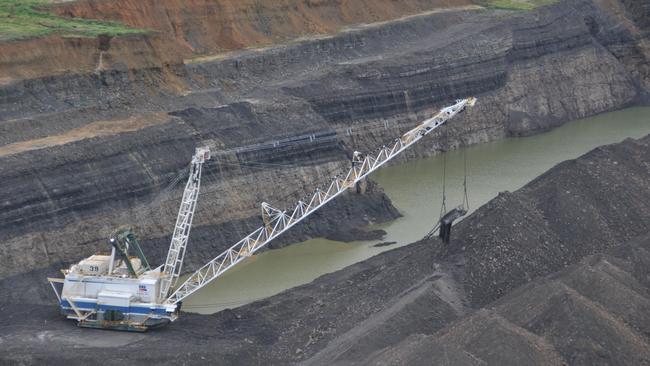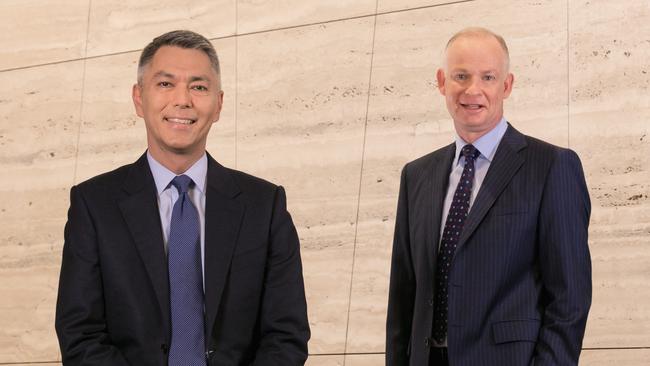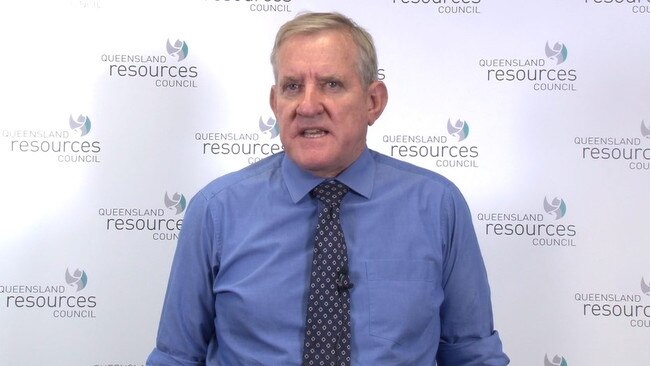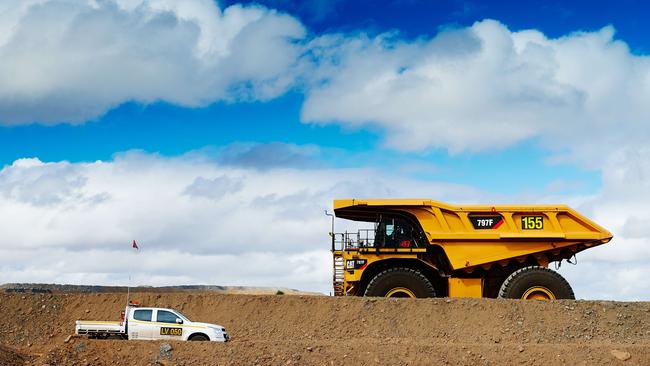BHP to sell off Blackwater and Daunia coal mines
In a massive shake-up to Central Queensland’s coal industry, mining behemoth BHP has announced it will divest its Blackwater and Daunia mine assets amid state government royalty hikes.

Business
Don't miss out on the headlines from Business. Followed categories will be added to My News.
About 3000 mining jobs hang in the balance with mining behemoth BHP looking to divest its Blackwater and Daunia mine assets in a massive shake-up to Central Queensland’s coal industry.
BHP chief executive officer Mike Henry made the announcement in the company’s half-year earnings call, citing the Queensland government’s new royalty regime and a push to concentrate on the highest-quality coking coal for the decision.
If a sale goes through, it will mark another pullback by the company in Queensland after it offloaded its South Walker Creek and Poitrel mines to Stanmore in 2022.

BMA asset president Mauro Neves said the Blackwater and Daunia mines were quality operations run by talented teams, however, that the lower quality metallurgical coal they produced would mean they would struggle to compete for capital going forward and may be better suited to a different owner.
“We know this is significant news for the people who work at Blackwater and Daunia, their families and the local community,” Mr Neves said.
“We expect the divestment review process to take up to 18 months, and we will keep our people and the community informed as we progress.
“In the meantime, its business as usual at Blackwater and Daunia, we remain focused on working as safely and productively as we can.”
He said the state government’s decision to raise coal royalties to the highest maximum rate in the world made Queensland uncompetitive.
“We considered a range of factors, including the resource base, technical planning and the market outlook for lower grade coals,” he said.
“The uncertainty caused by the unplanned increase in royalties did come into play as a contributing factor in our decision-making.
“Based on all of those factors, we determined that Blackwater and Daunia would struggle to compete for capital and may be better suited to a different owner.”
The new royalty regime, announced by Treasurer Cameron Dick in June 2022, added three tiers to the existing tiered structure, with companies now paying 20 per cent on the dollar when coal prices exceed $175 per tonne, 30 per cent on the dollar when prices climb beyond $225 per tonne and 40 per cent when they exceed $300.
Earlier this month, the state government said there would be “no change” to its new revenue collection regime, despite months of concentrated industry pushback.
“As the Treasurer made clear last year, every dollar of the new royalty tiers will be reinvested in regional Queensland,” a spokesman for Treasurer Cameron Dick said.
“We will continue to meet with the mining lobby when requested, but there will be no change to progressive coal royalties.”

Queensland Resources Council chief executive Ian Macfarlane said it was “very concerning” to see BHP point to the royalty tax increase as a contributing factor in its decision to divest its interests in the Blackwater and Daunia mines.
“While it’s hoped a new buyer will be found, the decision to sell the mines will create uncertainty for the employees at these two mines, their families, local businesses, and the local communities as the divestment review takes place over the next 18 months,” Mr Macfarlane said.
“BHP indicated the two mines would struggle to compete for capital under its current global investment plans, which is why the Queensland government should be doing whatever it can to attract investors, not scare them off with the world’s highest royalty tax rate.”
In its six-monthly review, BHP stated the state government’s decision to raise coal royalties to the highest maximum rates in the world meant the fiscal environment was no longer competitive or predictable enough for BMA to make significant new investments in Queensland.

“This again confirms that the state government’s new royalty rates, introduced suddenly and without industry consultation, has made Queensland uncompetitive,” Mr Macfarlane said.
“BHP’s concerns will be noted by other major investors here in Australia and around the world, which adds to the serious threat the royalty tax increase poses to future investment and jobs in Queensland.
“Queensland’s resources sector is the state’s biggest industry, contributing $94.6 billion to the state’s economy and supporting the jobs of around 450,000 Queenslanders.
“The state government needs to urgently reconsider its royalty tax increase before other companies join BHP in divesting their Queensland assets, threatening thousands of future jobs and jeopardising the state’s economic prosperity.”




